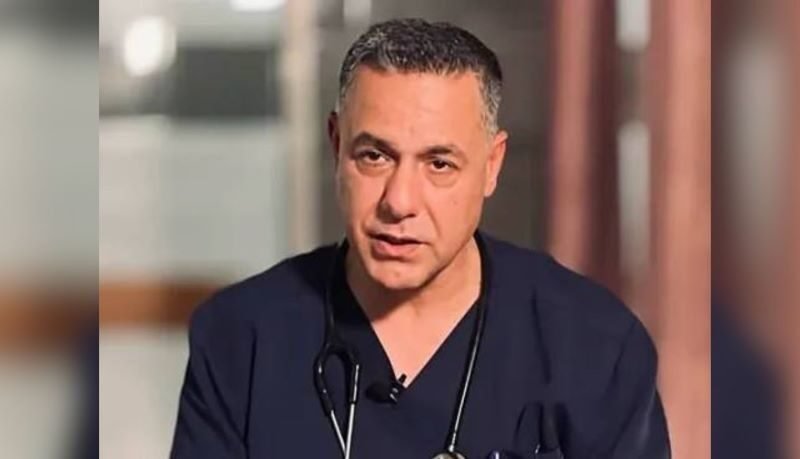DURING Israel’s war on Gaza, Dr Hussam Abu Safia, the director of Kamal Adwan Hospital in Beit Lahiya in northern Gaza, was warned by Israeli soldiers for months in 2024 to take his family and leave his duties.
But Abu Safia refused to leave his patients behind, as his colleagues and family said in a documentary by Al Jazeera’s Fault Lines.
Then in December as Israeli forces surrounded the hospital, an Israeli officer called Abu Safia and promised to relocate him and his staff to another hospital.
But the promise was a lie. Instead, the paediatrician and neonatologist was abducted by Israeli forces.
Ten months later, Abu Safia is still in detention as Israel has refused to include him in prisoner exchanges. His lawyer said he’s been subjected to torture and inhumane treatment, including long periods in solitary confinement.
Before his arrest, Abu Safia watched Israel’s war on Gaza unfold with increasing brutality.
During the earlier days of the war, Abu Safia would do his rounds daily and make videos, calling for international support and awareness over Israel’s war on his homeland.
Thousands of people were being killed, and Israel’s siege of Gaza meant that much-needed equipment and medicine were not getting in.
It became apparent that Israel’s war was not just against Hamas but against the Gaza Strip as a whole, including its medical infrastructure.
Despite increased attacks on healthcare workers, Abu Safia refused to abandon his patients, even after he went from doctor to patient when he was wounded in a drone strike on the hospital on November 25.
His family began to ask him if it might be better to leave Gaza altogether.
“He said: ‘If you want to travel, take the kids, but I’m going to stay here to work,’” his wife, Albina, said.
But she refused. “I said: ‘We need to stay together,’” she said of the “serious and dedicated” medical student she married about 30 years ago.
The two met in Kazakhstan in the 1990s when he was studying medicine there.
After the birth of their first son, Elias, Albina and Abu Safia moved back to Gaza in 1998 and lived in the Jabalia refugee camp. Over the coming years, Albina gave birth to three more sons and two daughters.
Elias was married in 2020 and had two children, and a few months before the war began, Albina and Abu Safia moved to a new house in Beit Lahiya.
But the war would upend their life and their family.
During the attack that wounded Abu Safia, his daughter was also wounded by a shard of glass that went into her neck.
His worst day, however, was when he lost his 20-year-old son Ibrahim.
“His whole life was still ahead of him,” Albina said.
“He wanted to become a doctor like his father. … He was registered to travel to Kazakhstan [where he was a citizen]. But that never happened.”
Ibrahim was out at the market when Kamal Adwan Hospital came under attack from quadcopters, Albina said. He told his mother he was at a house by the hospital and would come back when things calmed down.







